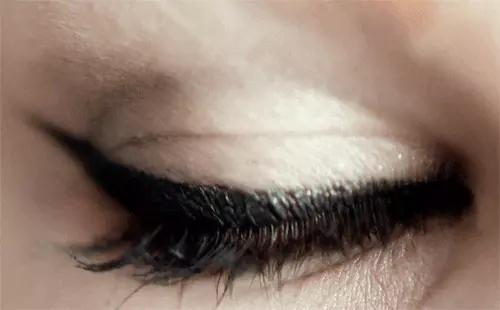Dr. Noa Bergman explains what causes Alzheimer's, is there a way to prevent the disease, and how to treat someone who has already become ill (Walla system!)
The eyes are more than a window to the soul - they are also a reflection of a person's cognitive health.
"The eye is the window to the brain," ophthalmologist Dr. Christine Greer, director of medical education at the Institute of Neurodegenerative Diseases in Boca Raton, Fla., told CNN. "You can see directly into the nervous system by looking at the back of the eye, toward the optic nerve and the retina. This scientific assumption led to a recent study that examined
how
the eye may help diagnose Alzheimer's disease before symptoms begin. "Alzheimer's disease begins in the brain decades before the first symptoms of memory loss," added Dr. Richard Isaacson, a neurologist who works on Alzheimer's prevention found Also at the Institute of Degenerative Diseases.
If doctors can detect the disease in its earliest stages, people can make healthy lifestyle choices and control "modifiable risk factors, such as high blood pressure, high cholesterol and diabetes," Isaacson said.
So how early can we see signs of cognitive decline?
To find out, the researchers examined tissues donated from the retinas and brains of 86 people with varying degrees of cognitive decline.
"Our study is the first to provide in-depth analyzes of the protein profiles and molecular, cellular, and structural effects of Alzheimer's disease in the human retina and how they correspond with changes in the brain and cognitive function," said study author Professor Maia Coronio-HaMaoui, a specialist in neurosurgery and biomedical sciences at Cedars. -Sinai in Los Angeles, in a press statement.
"These changes in the retina were correlated with changes in parts of the brain called the entorhinal and temporal cortices, which is actually a center for memory, navigation and time perception," Coronio-HaMaui said.
One look can reveal a lot.
like the eyes of an adult (photo: ShutterStock)
The researchers in the study collected retinal and brain tissue samples over 14 years from 86 human donors with Alzheimer's disease and mild cognitive impairment — the largest group of retinal samples ever studied, according to the authors.
The researchers then compared samples from donors with normal cognitive function to those with mild cognitive impairment and those with late-stage Alzheimer's disease.
"Earlier, more accurate"
The study, published in the journal Acta Neuropathologica, found significant increases in beta-amyloid, a key marker for Alzheimer's disease, among people with Alzheimer's and those with early cognitive decline.
In addition, microglial cells decreased by 80 percent in those with cognitive problems, the study found.
These cells are responsible for repairing and maintaining other cells, including clearing beta amyloid from the brain and retina.
Tissue degeneration and inflammation in cells in the far periphery of the retina were the biggest predictors of cognitive status, the study found.
"These findings may eventually lead to the development of imaging techniques that allow us to diagnose Alzheimer's disease, earlier and more accurately," said Isaacson, "and monitor its progress non-invasively by looking through the eye."
health
news
Tags
Alzheimer's
eyes










/cloudfront-eu-central-1.images.arcpublishing.com/prisa/S7ERVSCT4FUVX6R7TUVBDNTH5Y.jpg)


